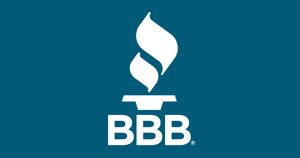Straight Talk: Watch for scams as student loan pause ends

Student loan pause is ending. Be on the lookout for scams.
Better Business Bureau serving Canton Region and Greater West Virginia offers tips and advice for consumers to avoid fraudulent practices.
After more than three years of relief, the payment pause on student loans is coming to an end. The U.S. Department of Education has announced that student loan interest will resume Sept. 1, and payments will be due starting in October. BBB has already received multiple reports of scams related to student loan repayment citing “new 2023 guidelines.”
How the scam works
You receive an email, letter or phone call from someone claiming you are eligible for “student loan consolidation,” “a payment reduction program,” or a similar service. The scammer may claim to represent the Federal Student Aid department.
The scammer will ask for personal information to confirm your identity or to check your eligibility. This might include your Social Security number, name and address, and even your FSA.gov login information.
After “verifying your identity” the scammer will offer you an enticing plan to reduce your loan repayment. If you agree, you are making payments to a third-party in vain as your payments are not going towards your student loan. Even if you don’t make a payment, sharing personal information puts you at risk for identity theft.
One student loan holder reported the following experience: “I received an email stating that the Student Loan Department has been trying to contact me to tell me all of my student loans are eligible for forgiveness under the new 2023 guidelines. They wanted me to call the number between 11 a.m. and 7 p.m. in Albuquerque, New Mexico, and give them information in order to process forgiveness.” At this point the loan holder reached out to their student loan company and learned the email was a scam.
Tips to avoid student loan forgiveness scams
Get to know the terms of your student loan and the relief program before acting. Always do your research before sharing personal information. Be sure to understand the ins and outs of your specific loan and how the student loan terms impact you. You may have to research who your current loan servicer is, as it may have changed. Discuss with them all your repayment options and update your contact information.
Never pay money for a free government program. Scammers often trick victims into paying for free government programs by claiming you can get additional benefits, faster benefits, etc., for a fee. A real government agency will not ask for an advanced processing fee. These are all red flags of a scam.
Be wary of unsolicited calls, emails, or texts from government agencies. Generally, the government will not contact you using these methods unless you grant permission. If you speak to someone claiming to be a government representative offering you student loan relief, do your research before you agree to anything.
Think something seems suspicious? Reach out to the agency directly. If you have any concerns about an alleged government representative's legitimacy, hang up the phone or stop emailing/texting. Find the official contact information (use ED.gov and studentaid.gov or other official sites), call to verify, and then report any suspicious calls or messages.
Be cautious of information even if coming from a friend. Verify all information you receive regarding student loan relief as scammers are known to hack social media accounts to spread government impostor scams.
For more information – Read about more scams targeting recent college graduates at bit.ly/GradScams.
If you have spotted a student loan forgiveness scam, even if you did not lose money, share your experience at BBB.org/ScamTracker. Your report can help boost consumer awareness and make scammers’ tactics less effective.
For BBB information – Visit BBB.org or call 330-454-9401 to look up a business, file a complaint, write a customer review, read tips, find our events, follow us on social media, and more!
This article originally appeared on The Repository: Straight Talk: Watch for scams as student loan pause ends
